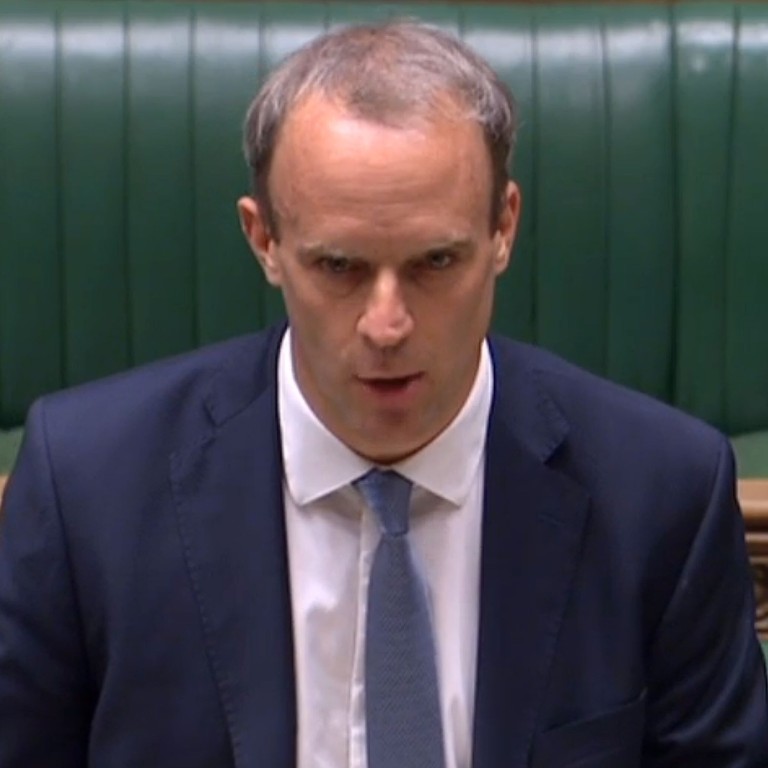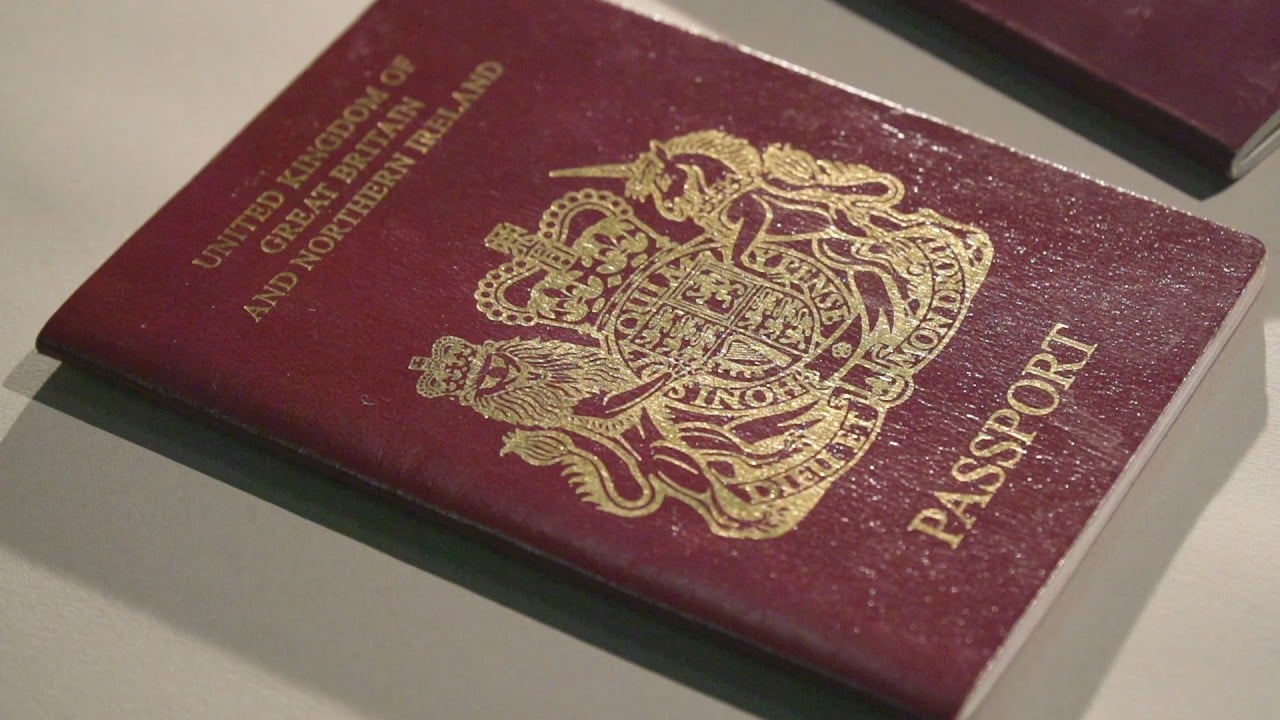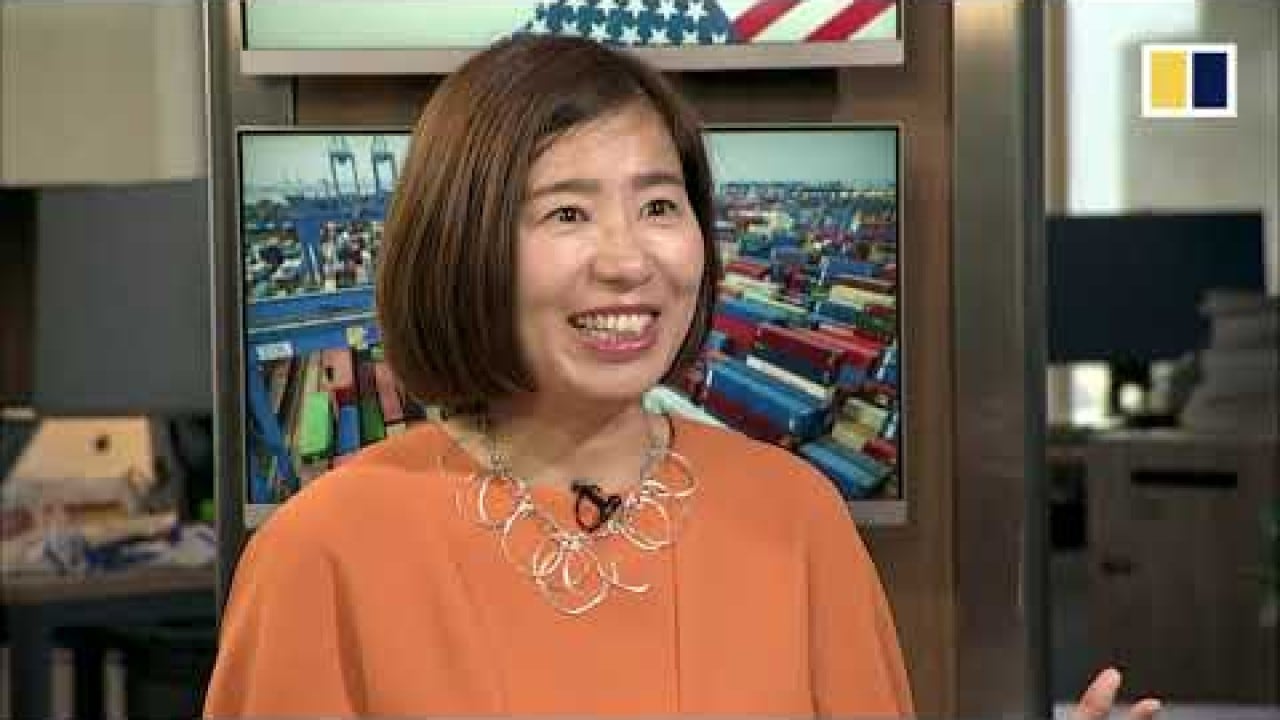
UK politicians urge use of sanctions on Chinese, Hong Kong officials
- Conservative Party heavyweights called on British Foreign Secretary Dominic Raab to use the new ‘Magnitsky Act’ to punish Hong Kong and Chinese officials
- No Chinese or Hong Kong officials were on the first batch of 49 names under the sanctions
UK Conservative Party heavyweights called on British Foreign Secretary Dominic Raab to use the new “Magnitsky Act” on Monday to punish Hong Kong and Chinese officials involved in human rights abuses, and to present a new UK policy on China.
“Whilst having targeted sanctions, the visa bans and the asset freezes on the individuals who may be responsible where the evidence shows that is the case, we got the mechanism to deliver it,” Raab said.
“We will of course look very carefully at any further proposals,” he told fellow members of parliament. “I am not going to pre-empt or prejudge further designations down the track, but we are already working on what the next wave might be.”

01:38
UK offers Hongkongers with BN(O) passports path to citizenship after new national security law
Iain Duncan Smith, former leader of the Conservative Party, asked Raab to put up sanctions against the former colony’s top political class “no matter who these individuals are, no matter how high they go, even if that meant starting with Carrie Lam and her family who I understand have the privilege of British passports”.
Lam’s husband and their two sons have British citizenship status, while Carrie Lam herself does not.
Tom Tugendhat, chair of the parliament’s foreign affairs committee and co-founder of the China Research Group in Westminster, criticised Raab’s “remarkable silence on human rights violations in China.” He was joined by Tobias Ellwood, chair of the defence committee, who asked Raab to come up with a new set of policies to reflect “China’s trajectory”.
Raab cautioned the need to continue engaging with countries bilaterally, adding: “Frankly, we need to.”
Hong Kong police granted sweeping new powers under national security law
Calling the UK “a global leader and our close partner in promoting and protecting human rights”, US Secretary of State Mike Pompeo said: “We welcome the UK’s establishment of a global human rights sanctions regime that promotes accountability for serious human rights abuses.”
Earlier, Lam commented on US sanctions and said: “The Hong Kong government would not be frightened by any sanctions. If necessary, the country [China] would adopt retaliatory measures, and the Hong Kong government will fully cooperate.”
“Huawei is going through the review in the context of US trade sanctions. We have got the integrated review coming forward; that will be completed by the autumn,” he said. “I think that is the right opportunity … to make sure we get the right strategy and the resources to back it up.”

12:13
‘No winner’ amid rising US-China tensions, says Hong Kong’s commerce chief Edward Yau
“We want to be your friend. We want to be your partner,” Liu said in a press conference. “But if you want to make China a hostile country, you will have to bear the consequences.”
An activist says Britain’s new “Magnitsky Act” – named after Sergei Magnitsky, the Russian lawyer killed under detention in 2009 – could pose an impact on Huawei’s operations.
Former chief justice accused of not grasping Hong Kong’s Basic Law
“The UK’s sanction scheme is much broader and more significant than anyone expected,” said Luke de Pulford, coordinator of the Inter-Parliamentary Alliance on China. “Modern slavery and forced labour will be sanctionable offences. Company executives from Huawei, Hikvision and ByteDance [could be] punished under the scheme for alleged complicity in atrocities against Uygur Muslims.”
The three companies have been accused by international human rights groups of facilitating China’s repressive measures against the Muslims in Xinjiang. They have denied involvement.

